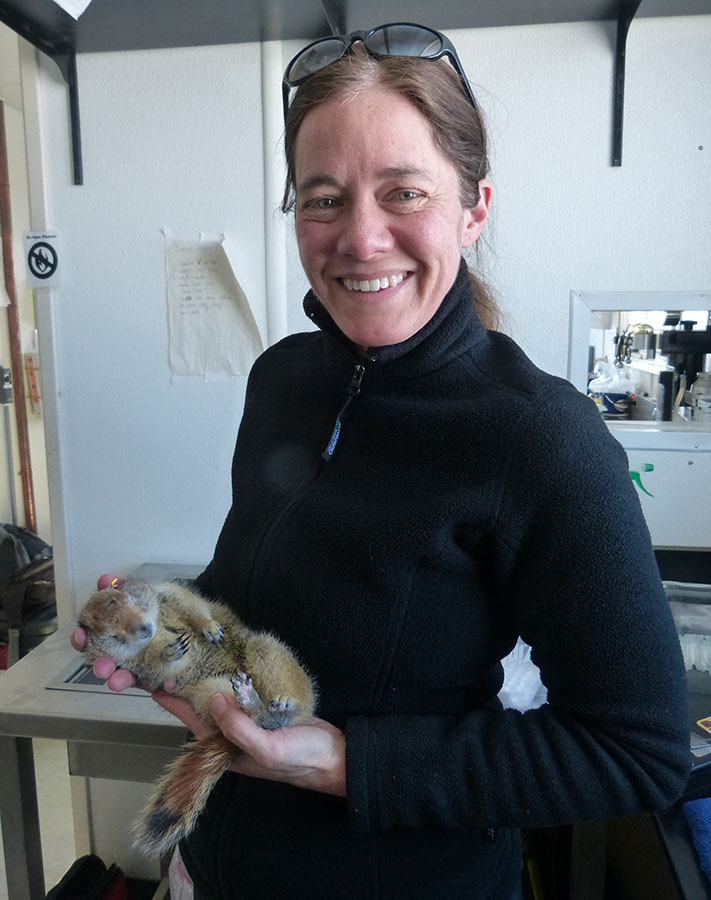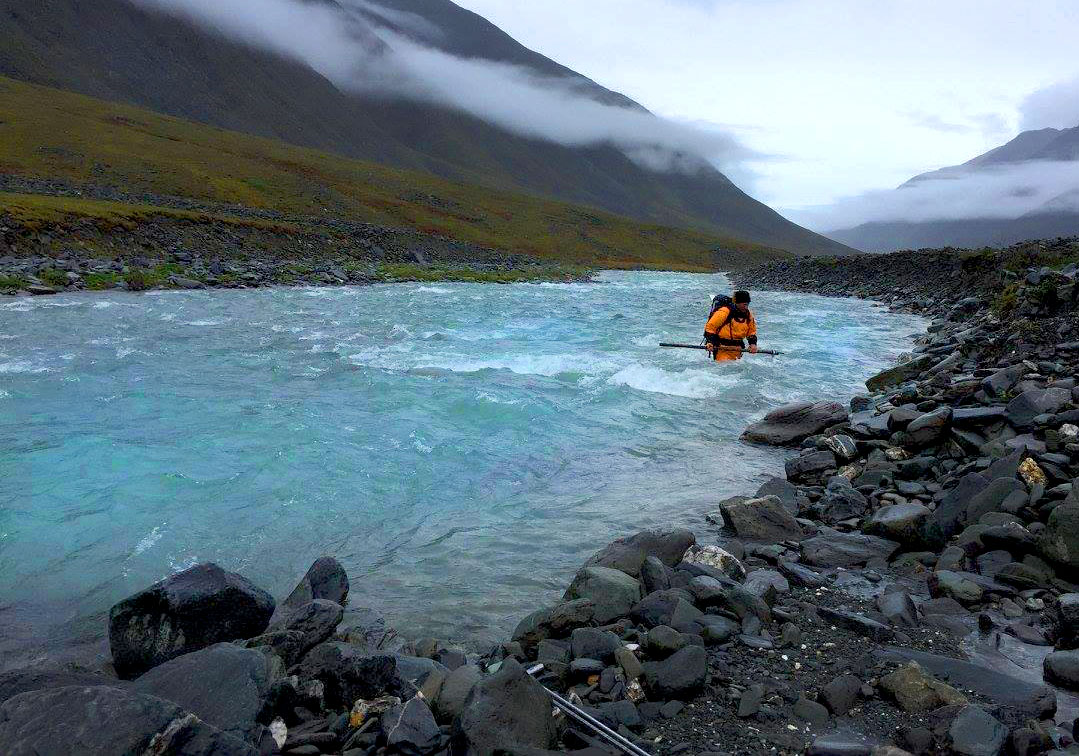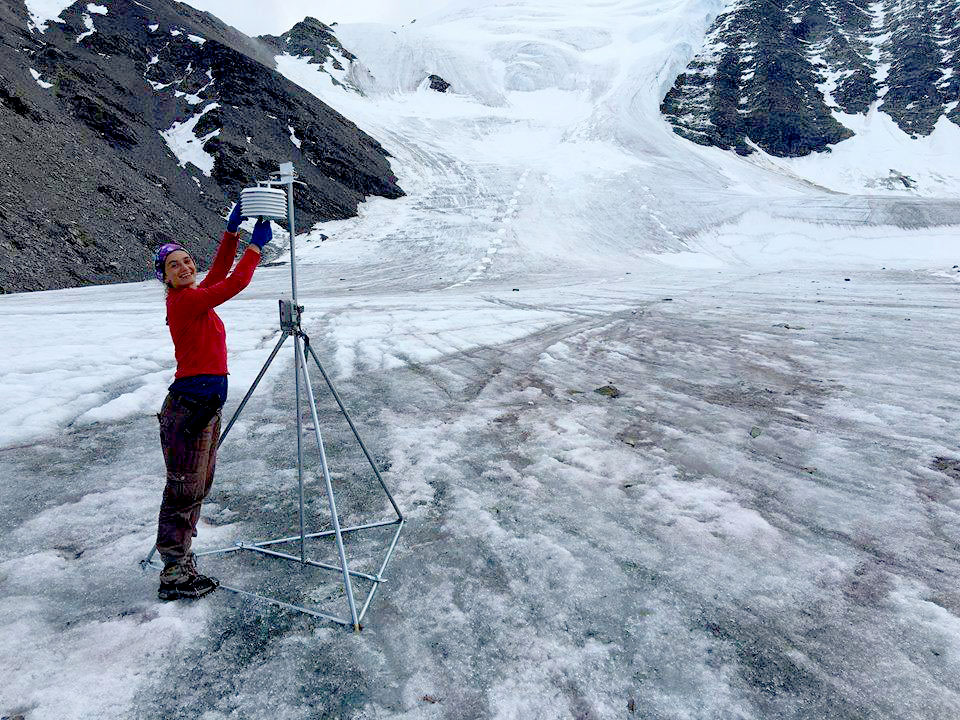
Science in the field can differ drastically from science in the classroom.
Reading about hibernating ground squirrels having the lowest body temperature of any mammal, while interesting, is completely different than witnessing their peripheral tissues dropping below freezing without solidifying or crystalizing—a true phenomenon.
Northern Arizona University field researchers have been studying ground squirrels and the effects of climate change on hibernation since 1993. They are one of two NAU groups who will host K-12 teachers at research sites in the Arctic and sub-Arctic regions of Alaska this summer. The partnership is organized by PolarTREC to invigorate polar science education and understanding by bringing educators and polar researchers together.
“I think involving K-12 teachers in research is really helpful in getting K-12 students excited about STEM,” said Cory Williams, research assistant professor who has worked on the ground squirrel project since 2008.
Williams and “Team Squirrel” are hosting Jennifer Balducci, a high school biology and chemistry teacher from Switzerland. During her three weeks in the Arctic, which concludes in early May, Balducci is immersed in field work, capturing arctic ground squirrels as they emerge from hibernation and equipping them with biologgers that allow NAU scientists to monitor their body temperature and activity levels throughout the year. While in the field, Balducci has been communicating with her students more than 4,500 miles away through blogs. She hopes this will encourage them to become passionate learners.
“Many of these kids hear the word ‘research’ and think only about lab-based studies, which doesn’t interest all of them,” Williams said. “This provides a great opportunity to showcase other types of research and hopefully have more kids, particularly from under-represented groups, consider STEM careers.”

The second group of NAU researchers is working with University of Alaska Fairbanks and Alaska Pacific University on a project called “Arctic Glacial Lakes.” At the G. William Holmes Research Station in Alaska’s Arctic National Wildlife Refuge, the scientists conduct research to better understand the complex sedimentological and hydrological processes important to glacier-fed Arctic lakes.
Rebecca Harris is a high school science teacher from Utah who will join the team of researchers in the field in August. Harris’s three-week stint will consist of retrieving instruments from approximately 50 meters below the lake’s surface, procuring sediment cores, retrieving data from loggers at weather stations and rain buckets, measuring discharge in rivers and visiting glaciers to record annual ice accumulation.
“The rapid climate changes of recent decades have profoundly impacted the natural environment, politics and societies worldwide, and these impacts are projected to continue to intensify in the future,” said graduate student Ellie Broadman, one of the field researchers at Lake Peters. “Because of the severity and large-scale of its impacts, climate change is extremely important to understand and is therefore usually a key topic in earth and environmental science curricula in middle and high schools. It’s important that students understand that all the buzz about modern climate change isn’t just hyperbole; it’s based on long-term, in-depth understanding of climatic and environmental systems.”
Broadman, who will work closely with the visiting teacher this summer, believes Harris will be able to share experiences in the field with her students in hopes of making various concepts in earth and environmental science more concrete.
“I like to imagine the difference between talking to her students in southeastern Utah about climate change in the Arctic as a general idea that some scientists somewhere study, versus being able to explain it using real data she helped collect, photos of herself working on glaciers or in the tundra and stories about living and working in the Arctic that she can share with her students. The latter scenario makes studying Arctic climate change more of a reality than a mere idea for both Rebecca and her students.”

With the goal being to improve and enliven science education by connecting teachers, researchers, students and the public around the globe, Williams hopes this experience proves to be eye-opening for the visiting teachers.
“I hope after this summer they are able to better understand how important climate change is in polar systems, but mostly, I hope this sparks great enthusiasm for science in the future generations that Rebecca and Jennifer are able to share their experiences with.”


